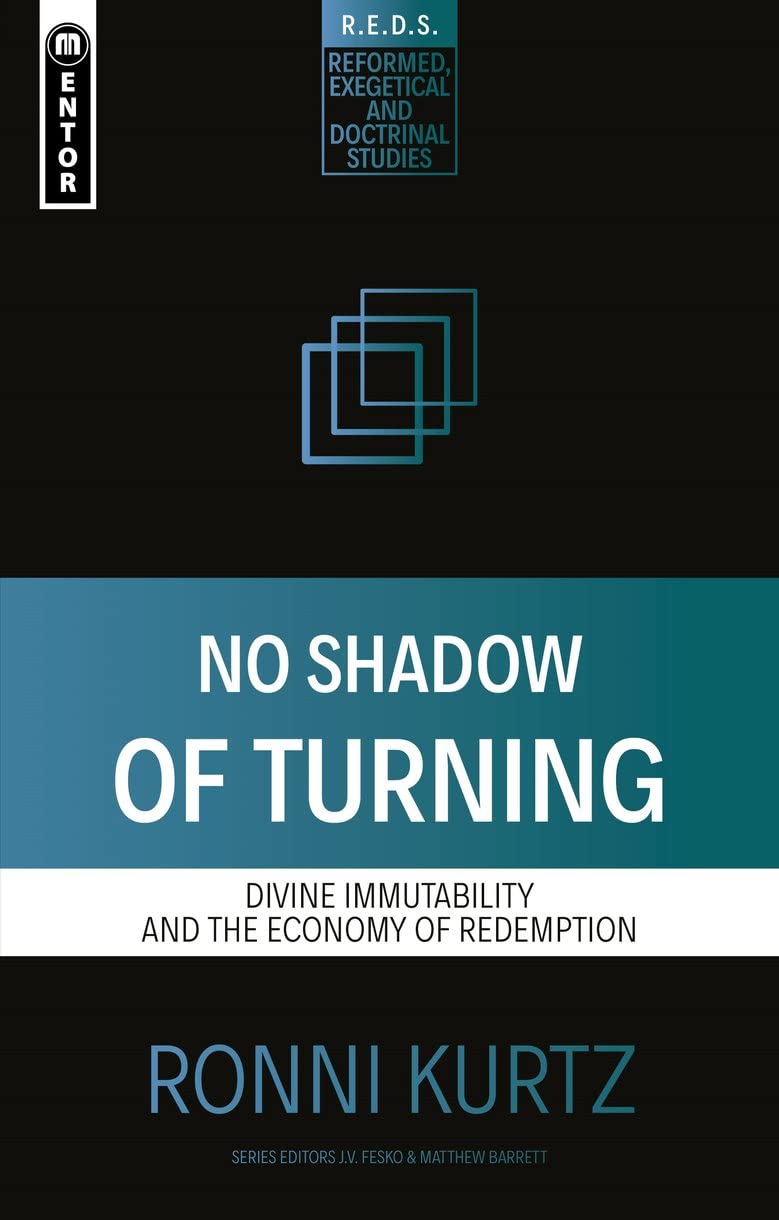A Book Review for Books At a Glance
by Ryan M. McGraw
God’s interaction with the created world has always been a challenging theological question. The issue is how genuine interaction between an immutable God and a mutable creation is possible. In recent theology, many scholars have attempted to cut the theological knot by denying divine immutability to affirm God’s genuine responses to creation, especially the free actions of humanity (e.g., 22-32, 42-74). Despite this modern shift, the Christian church has consistently affirmed divine immutability throughout its history, whether or not one could adequately explain the nature of God’s interaction with the world. Following in this vein, Ronni Kurtz seeks to illustrate why the doctrine of salvation is necessarily rooted in divine immutability, giving us confidence in the Triune God as “a sure and steady anchor of salvation” (209). This fine study will challenge readers to think about God in biblical ways, illuminated by church history, and made coherent by a proper Christian philosophy.
Organized logically and clearly, the book’s three parts address methodology, a three-fold witness to divine immutability, and the implications of immutability to soteriology. Diving the first section into the theology and economy of the Trinity, the second part defends immutability from historical theology, biblical theology, and systematic Christian reasoning, together working to form “a constructive and dogmatic case for immutability as an essential divine attribute” (37). Rounding out the material, the final two chapters then apply immutability to the “economy of redemption,” and press concluding application related to the stability of redemption in the immutability of the Redeemer. While not solving every mystery about the interaction between an immutable God and a changeable world, the author shows clearly that the bent of Scripture is to drive us to the unchangeable actions and promises of the Triune God to save us.
Examining the author’s content in a bit more detail will help readers get a feel for what this work has to offer. Kurtz notes that despite growing interest in immutability, there remains “an alarming lack of book-length publications from Protestant evangelicals on the subject” (114), thus substantiating the need for his own study. Self-consciously placing God rather than soteriological concerns at the center, he notes that “The fullness of God’s Triune life in Himself is the only foundation fit to shoulder the burdensome weight of theological reasoning” (20). Kurtz states both a general and a specific thesis for his work (e.g., 209-210), reflecting his stress on theology before soteriology. First, all soteriology should be rooted in God as its “principal and source.” Second, and more specific to his research, the author demonstrates varied “soteriological implications for a classic understanding of divine immutability” (35). In other words, defending immutability is not the author’s direct aim (121), instead, it is showing why the doctrine is essential for the doctrine of salvation. Kurtz defines immutability helpfully as “the Christian teaching, held by the vast majority of the historic Christian tradition, that declares that God is free from change and that alteration in God is an impossibility” (40). Giving readers theological “handrails” to help them grasp this definition, he asserts that God is unchangeable with respect to process, processions, potentiality, parts, passions, perfections, and plans (41). Chapters three through five are essential to his project because they root divine immutability in history, Scripture, and sound biblical reasoning. Accordingly, and appropriately, soteriology does not appear in full force until chapter six, as the project nears its close (38), illustrating how a proper doctrine of salvation is rooted in a proper doctrine of God. The five “tables and figures” at the end of the volume helpfully summarize in chart form the primary problems and arguments addressed in the volume, making it easier for readers to digest the author’s overarching case for divine immutability and soteriology.
Although the interchanges between an immutable God and a mutable creation remain mysterious to us on some level, Ronni Kurtz sets the right tone in this book. The gospel is about the Triune God on whom we can certainly rely for our salvation. Pressing readers to know the Triune God, rather than merely speculating about his nature, his work has great potential to fill a gap in the relevant literature on this topic that leads us into deeper praise, assurance, and worship.
Ryan M. McGraw
Greenville Presbyterian Theological Seminary
